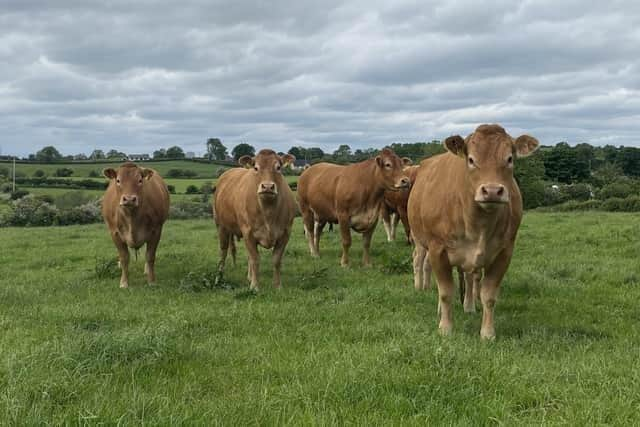Disease risks from replacement stock can exacerbate the impact of TB breakdowns
and live on Freeview channel 276
The removal of bTB reactor animals often leads to the necessary purchase of replacement stock. However the purchase of cattle in any situation represents a high risk for introducing infectious agents to a herd.
In one local suckler herd, a recent TB breakdown necessitated the purchase of replacement stock including a bull. A bull was subsequently sourced outside NI, and on arrival the farmer followed BVD testing requirements. These revealed that the bull was BVD positive on both initial and confirmatory tests, and the bull was destroyed.
Advertisement
Advertisement
In another recent case, a herd that had lost cattle to bTB purchased replacements through a dispersal sale. The herd that was being dispersed had BVD present at the time, so BVD Positive animals were not permitted to move, however, it is probable that other non-restricted animals carried a transient infection back to the purchasing herd.


These cases demonstrate the impact that a bTB breakdown can have on wider biosecurity at the farm level.
Maintenance of a closed herd is an ideal and important biosecurity measure as it reduces the risk of infection from purchased cattle, but the need to replace bTB infected stock can override bioexclusion plans, which are essential for the protection of herd health, and can prevent farmers from implementing effective biosecurity practices.
While an underlying intention of restocking a herd is to create a herd capable of remaining bTB free, in terms of BVD risk the purchase of breeding stock carries the risk of introducing a persistently or transiently infected animal or of a dam carrying a PI foetus (a ‘Trojan’ dam).
Advertisement
Advertisement
The level of risk can be raised further when purchases are made from multiple sources. Cattle imported into Northern Ireland are not required to have a pre-movement BVD test, however untested animals are required to be tested within 20 days of arrival on a farm.
Although cattle movements are associated with the spread of infections, the movement of cattle to replace cattle removed due to bTB is not optional if the affected herd is to remain economically viable and sustainable in the longer term.
The purchase of replacement stock is not solely driven by economics, but can depend on the herd type, available genetics, farmer judgement of stock and existing networks of potential sellers. In the situations described, the impacts of the TB and BVD disclosures in the herd go beyond financial costs. Significant farmer time is involved in identifying, purchasing and moving the replacements.
In addition, the decisions required to allow a breeding programme to proceed at pace can lead to pressurised situations for those working on the farm. The loss of income as a result of introduced infection is an unexpected drain on resources, and the animal welfare impacts can also be consequential.
Advertisement
Advertisement
The systematic BVD eradication programme in NI being run by Animal Health and Welfare NI (AHWNI) continues to make steady progress. There is however an increased need for herd restrictions and support of risk-based trading. The BVD Implementation Group continues to call for further measures, including the availability of BVD herd level statuses, that would accelerate progress towards the eradication of BVD.
Meanwhile, Newry and Armagh DUP assemblyman, William Irwin MLA, has spoken of his concern on what he termed “out of control” TB incidence levels in Northern Ireland.
Mr Irwin stated: “There is a growing concern amongst the farming community that the noticeable lack of focus, effort and determination from DAERA to eradicate TB is having a greater and greater impact on the industry.”
He added: “No matter who I speak to in the farming community, there is common concern and that is the issue of wildlife carriers and the lack of action on controlled culls.
Advertisement
Advertisement
“The previous DAERA Minister, Edwin Poots MLA, published a strategy to reduce and ultimately eradicate bTB which included effective measures against wildlife carriers, however officials and the courts are very unfortunately holding this back.
“The fact that DAERA are consulting on a significant reduction in compensation really makes no sense whatsoever when we see no meaningful action on eradication. Farmers take any and all steps they can in disease control and what more can be asked of them?”
Mr Irwin continued: “When a farmer’s herd is closed and TB is detected, the costs are significant for anyone in this situation and therefore the rate of compensation is so important.
“TB simply cannot be allowed to get any more prevalent and the statistics are stark when compared with other regions and indeed the Republic of Ireland, where incidence levels are around 4.7 per cent. There is an obvious and vast difference on the island in terms of incidence rates north and south and it points to inaction from DAERA’s perspective and that simply has to change,” he concluded.